All-time NBA re-draft: The best picks at every slot (Part 1, Nos. 60-31)
What do the Bucks, Warriors, Nuggets, and Thunder have in common? They've all won titles this decade by scouting, drafting, and developing unheralded talent.
Finding gems late in the draft leads to championships. So, have you ever wondered who's the best draft pick in NBA history at every single slot from 1-60? I spent the last few weeks poring over every NBA draft to determine the answer and see how some unsung prospects have shaped league history.
A couple of notes:
- This is a completely subjective exercise. Does "best" mean most accomplished? Most talented? Does it include their impact on the sport? Is it strictly about stats? What about longevity? Does era matter? Calm down, Socrates. The answer is yes - all of it was taken into consideration. I searched for the most dominant and impactful player relative to their respective era for all 60 slots.
- The player must have played in the NBA. They could've been drafted into or played in the ABA before the 1976 merger as long as they also played in the NBA.
Now, let's get to picks 60-31. Part 2 can be found here.
🏅 = Hall of Famer
* = active player
60. Isaiah Thomas, PG (2011)
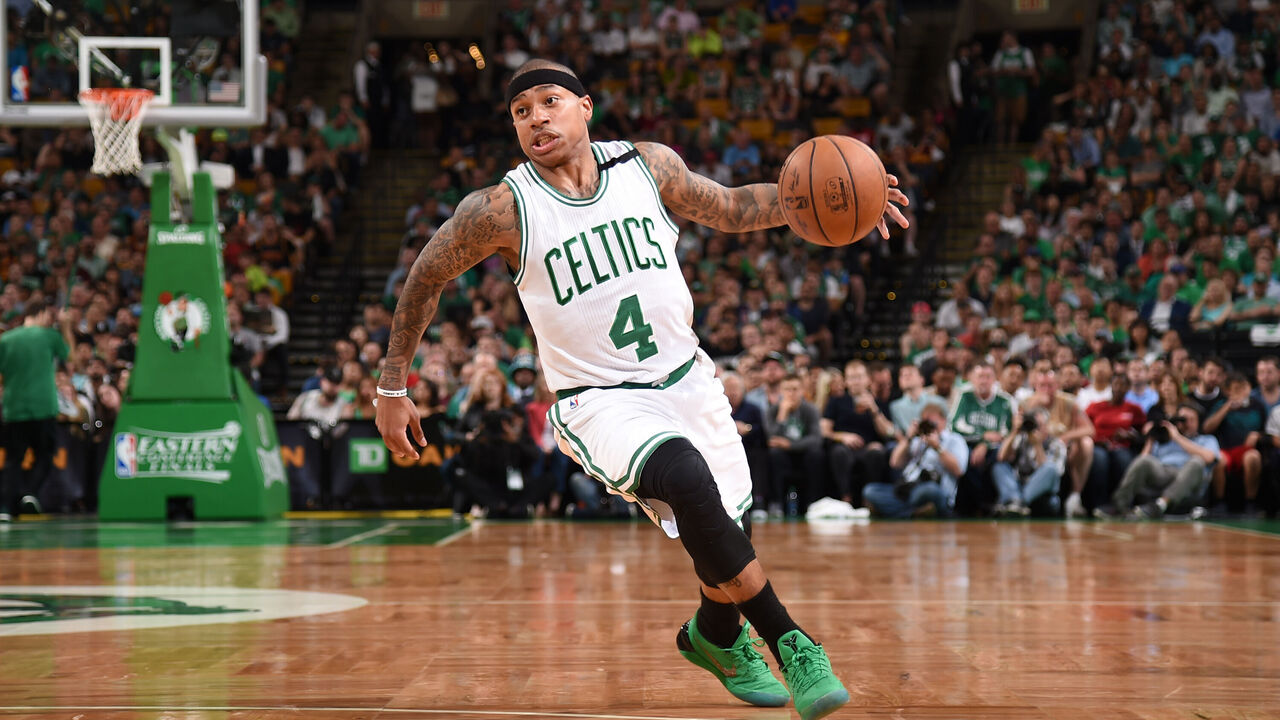
No. 60 picks aren't supposed to survive in the NBA, and 5-foot-9 guards have an even more treacherous path. Thomas is the shortest player in league history to earn an All-NBA nod and appear in multiple All-Star Games.
NBA fans will always remember Thomas' 2016-17 run with the Celtics when he averaged 28.9 points per game, was selected to the All-NBA second team, and led Boston to the Eastern Conference finals.
Runner-up: Sam Merrill
59. Pat Cummings, F (1978)
Although Cummings isn't exactly a household name, he was one of the 1980s' best role players. His best years were with the Mavericks and Knicks as he averaged at least 12.5 points for four consecutive seasons.
Runner-up: Sedric Toney
58. Kurt Rambis, F (1980)
Rambis' stats are underwhelming, but he had a 14-year NBA career and contributed to four Lakers championships in the 1980s before transitioning to coaching.
Runner-up: Henry Bibby
57. Manu Ginobili, G (1999)🏅
Drafting Tim Duncan first overall in 1997 set the Spurs' dynastic run in motion. Coming off an NBA title two years later, San Antonio found a jewel from Argentina with the 57th pick.
At a time when international players weren't respected, no one thought Ginobili would last in the NBA. He didn't debut for the Spurs until 2002, but he helped them win four championships in 12 years while making the ultimate basketball sacrifice: coming off the bench. Ginobili won Sixth Man of the Year in 2008. He shone his brightest on the biggest stage, averaging 14 points, 4.2 rebounds, and 3.5 assists in 29 NBA Finals games.
Runner-up: Marcin Gortat
56. Luis Scola, F (2002)
The Argentinian forward came to the NBA five seasons after the Spurs originally drafted him but still carved out a 10-year career. Scola averaged double digits in his first six seasons, five of which were with the Rockets. He also played a key role in Argentina's semifinal upset of the U.S. at the 2004 Olympics.
Runner-up: Amir Johnson
55. Patty Mills, G (2009)
I'm sure you're shocked Bronny James, the most famous 55th pick, didn't take this spot, but Mills just wrapped up his 16th NBA campaign. He's one of only seven players drafted in 2009 who played last season. Mills' most notable stint was a 10-year run with the Spurs in which he helped them capture the 2014 title. Mills was San Antonio's fifth-leading scorer in the Finals, averaging 10.2 points per game.
Runner-up: E'Twaun Moore
54. Sam Mitchell, F (1985)
Mitchell played 10 of his 13 seasons with the Timberwolves. He ranks fifth in franchise history in total points and rebounds and sixth in steals. Mitchell was never a star, but there's not a lot of competition at this slot.
Runner-up: Shake Milton
53. Anthony Mason, F (1988)
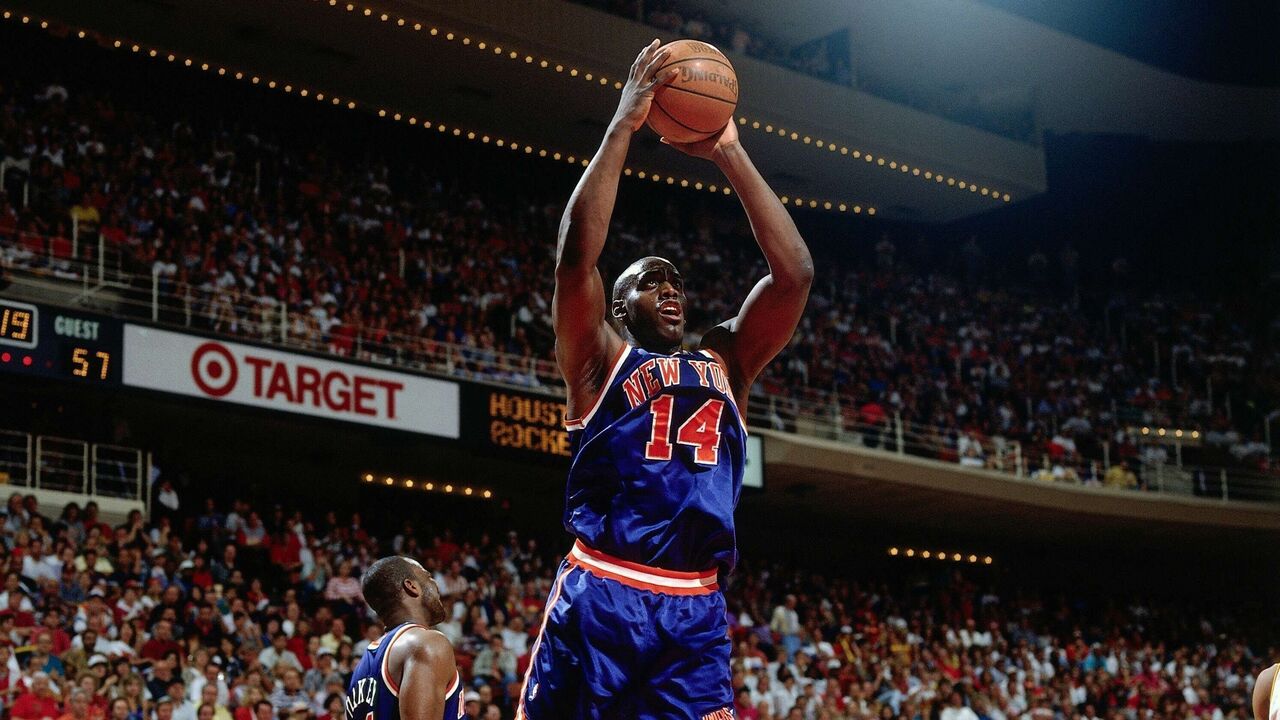
Mason was a mainstay off the bench for the Knicks, bringing toughness and physicality to a dangerous frontcourt featuring Patrick Ewing. Mason helped the Knicks advance to the 1994 Finals and won Sixth Man of the Year in 1995. He then led the league in minutes the following two seasons.
He finished in the top 10 in MVP voting and was the Defensive Player of the Year runner-up in 1997. He was an All-Star in 2001 with the Heat.
Runner-up: Rasual Butler
52. Fred Hoiberg, G (1995)
This draft slot is as barren of talent as any in the top 60, but someone must claim the mantle. Although Hoiberg will be remembered for his NBA and collegiate coaching career, the sharpshooter led the NBA in 3-point percentage (48%) during the 2004-05 season, his 10th and final year.
Runner-up: KJ Martin
51. Kyle Korver, G (2003)
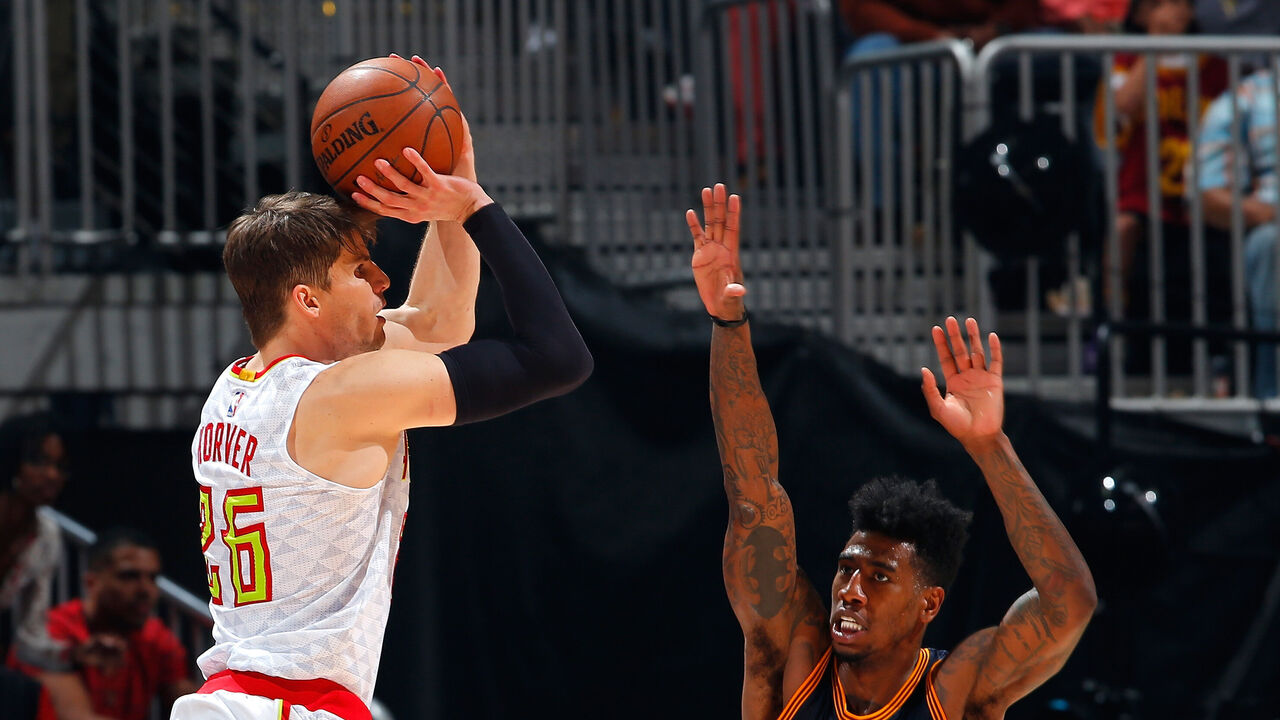
Korver has drilled the eighth-most threes in NBA history and set the record for the highest single-season 3-point percentage by nailing a ridiculous 53.6% of his long-range attempts in 2009-10. He led the NBA in 3-point percentage four times and owns the 10th-best career 3-point percentage. Korver is one of the smoothest catch-and-shoot marksmen to ever touch a basketball.
Runner-up: E.C. Coleman
50. Steve Kerr, G (1988)
Speaking of prolific shooters, Kerr tops the all-time NBA leaderboard in career 3-point percentage. He drilled 45% of his attempts over 15 seasons. Kerr won five championships as a player - three with the Bulls as Michael Jordan's sharpshooting sidekick and two with the Spurs.
Kerr's subsequent roles as an executive, broadcaster, and coach, where he won four NBA titles and led Team USA to a gold medal, made him a basketball icon. His championship contributions as a player turned out to be just the beginning.
Runner-up: Georges Niang
49. Eddie Johnson, G (1977)
Johnson's arc is tragic, but he had a dominant stretch in the late 1970s and early '80s for the Hawks. He was a two-time All-Star and averaged double-digit points in his first nine seasons. Across his career, he averaged 15.1 points and 5.1 assists before his cocaine addiction and associated legal trouble eventually led the NBA to permanently ban him.
Runner-up: Andray Blatche
48. Marc Gasol, C (2007)
The Lakers and Grizzlies swapped brothers after L.A. drafted Marc Gasol in 2007. Pau Gasol went to the Lakers and his younger brother landed in Memphis, a trade that benefited both teams. Marc was a three-time All-Star in his 10-plus seasons in Memphis. He was named Defensive Player of the Year in 2013 and won a championship as the Raptors' starting center in 2019, the same season he was traded there.
Runner-up: Craig Hodges
47. Paul Millsap, F (2006)
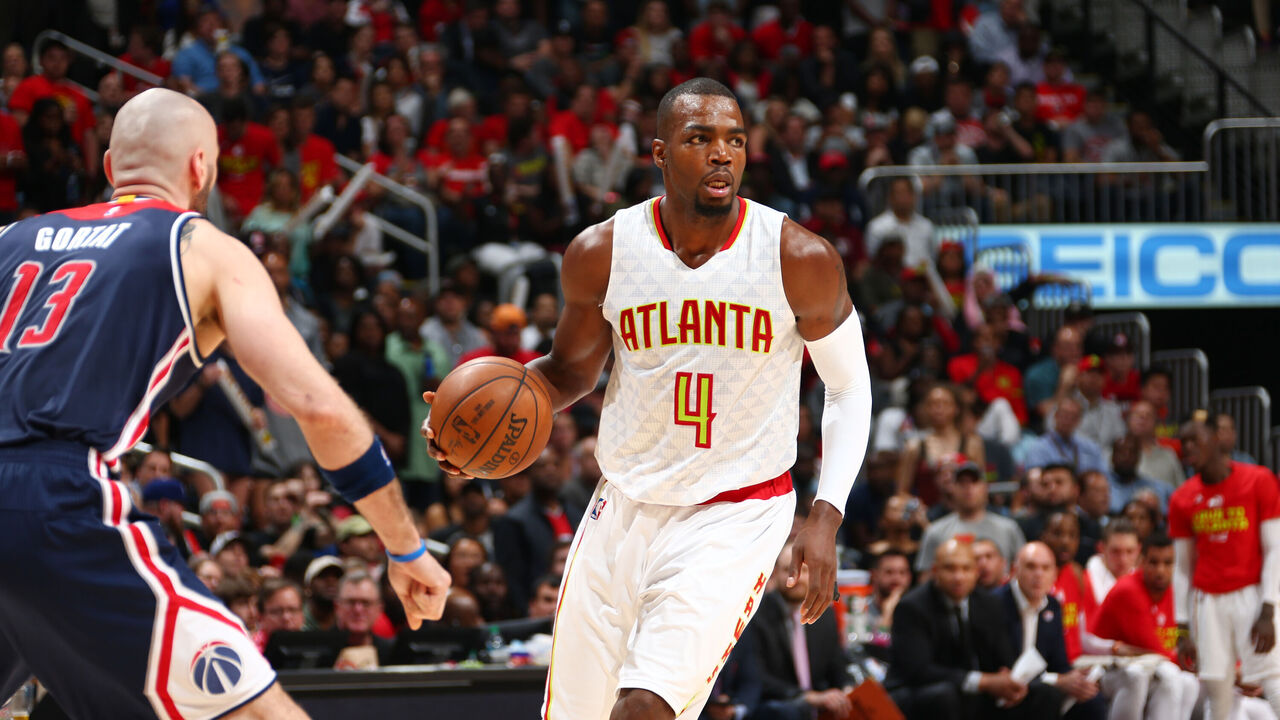
Millsap was a true power forward before the job description changed. He started his career in Utah but was at his best with the Hawks, earning four All-Star selections in as many seasons. He was Atlanta's star during the team's most successful four-year stretch this century. Millsap could play with his back to the basket and in the mid-post, and his face-up game was bruising. Consistency was one of his greatest assets: He averaged double figures for 12 straight seasons.
Runners-up: Vernon Maxwell, Mo Williams
46. Jeff Hornacek, G (1986)
Norman Powell could have a real claim to this slot in a few years. For now, Hornacek's 14 seasons come out ahead. He averaged double figures in his last 12 campaigns and earned his lone All-Star selection in 1992 with the Suns. The Jazz retired Hornacek's number after seven years of service.
Runners-up: Norman Powell, Danny Green
45. Lou Williams, G (2005)
The three-time Sixth Man of the Year was a professional bucket-getter. He started his career with the Sixers and had successful stints with the Hawks and Clippers. Williams was one of the best bench scorers in league history. Drafted out of high school, he averaged over 30 minutes per game once in his 17 seasons but scored at least 14 points per game nine times.
Runner-up: Antonio Davis
44. Malik Rose, F (1996)
Rose is a two-time champion with the Spurs and played a valuable bench role during the early stages of their dynasty. Sure, he only averaged double digits once in his 13-year career, but who else is taking this spot?
Runner-up: Lonny Baxter
43. Michael Redd, G/F (2000)
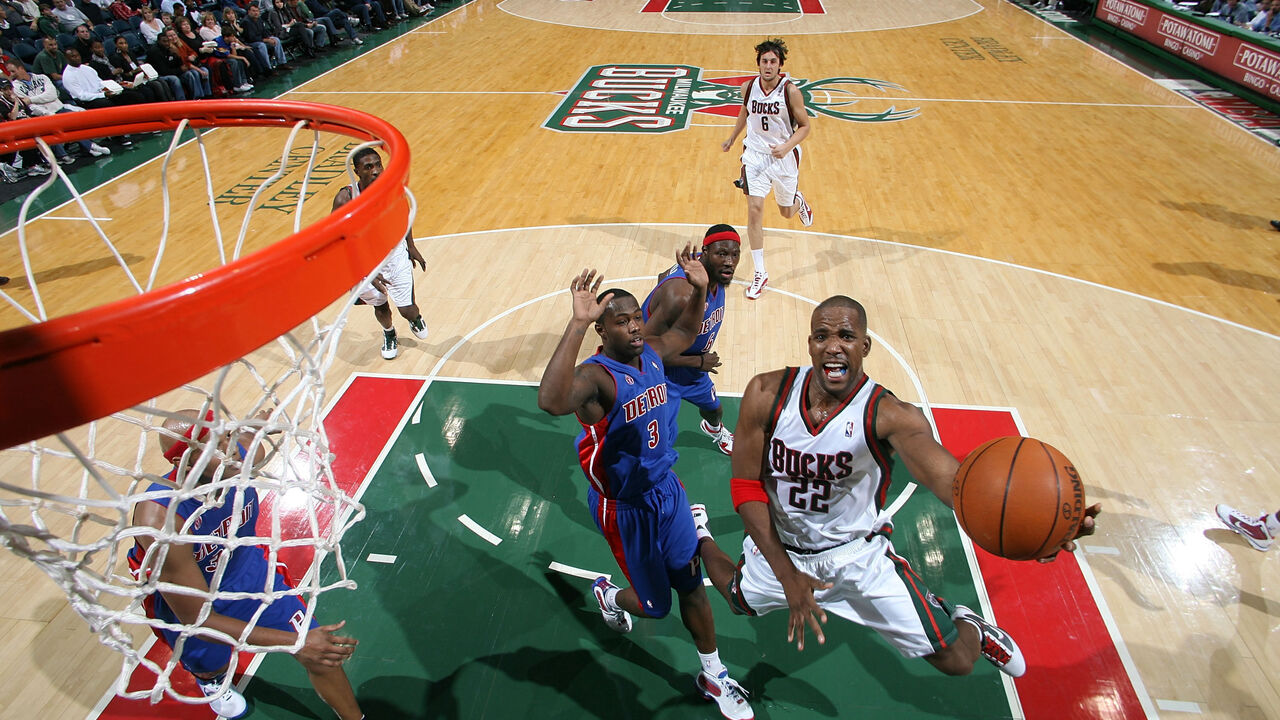
Before Giannis Antetokounmpo took the Bucks to new heights, Redd was Milwaukee's franchise cornerstone for most of the 2000s. While they didn't achieve much team success during his tenure, Redd averaged over 20 points per game for six straight seasons, including one All-NBA appearance. He averaged 19 points for his career and remains in the top 10 in points and games played in Bucks franchise history.
Runner-up: Trevor Ariza
42. Stephen Jackson, F (1997)
Jackson was never an All-Star, but calling him a role player would be a disservice. He averaged 15.1 points over 14 seasons and won a title with the Spurs in 2003. While his lengthy suspension for his role in the "Malice at the Palace" is a blemish on his resume, Jackson enjoyed a mid-career resurgence with Golden State in the late 2000s. He averaged 20 points per game for three straight seasons while starring for the "We Believe" Warriors.
Runners-up: Zaza Pachulia, Patrick Beverley
41. Nikola Jokic, C (2014) *
I wouldn't blame you if you're grabbing Taco Bell at this point - a fitting ode to Jokic, who was drafted as ESPN played a commercial for the fast-food chain in the middle of the second round. Who could have imagined an overweight Serbian kid would become the best player of the 2020s?
Let's list the accolades: three-time MVP, 2023 NBA champion and Finals MVP, seven-time All-Star, and seven-time All-NBA honoree. His career averages of 21.8 points, 10.9 rebounds, and 7.2 assists don't tell the whole story. Jokic has the highest player efficiency rating in NBA history, topping Michael Jordan and LeBron James. Jokic is in his prime, and his story is far from complete. Who knows how far he'll climb up the all-time ranks.
Runner-up: Cuttino Mobley
40. George Gervin, G/F (1972) 🏅
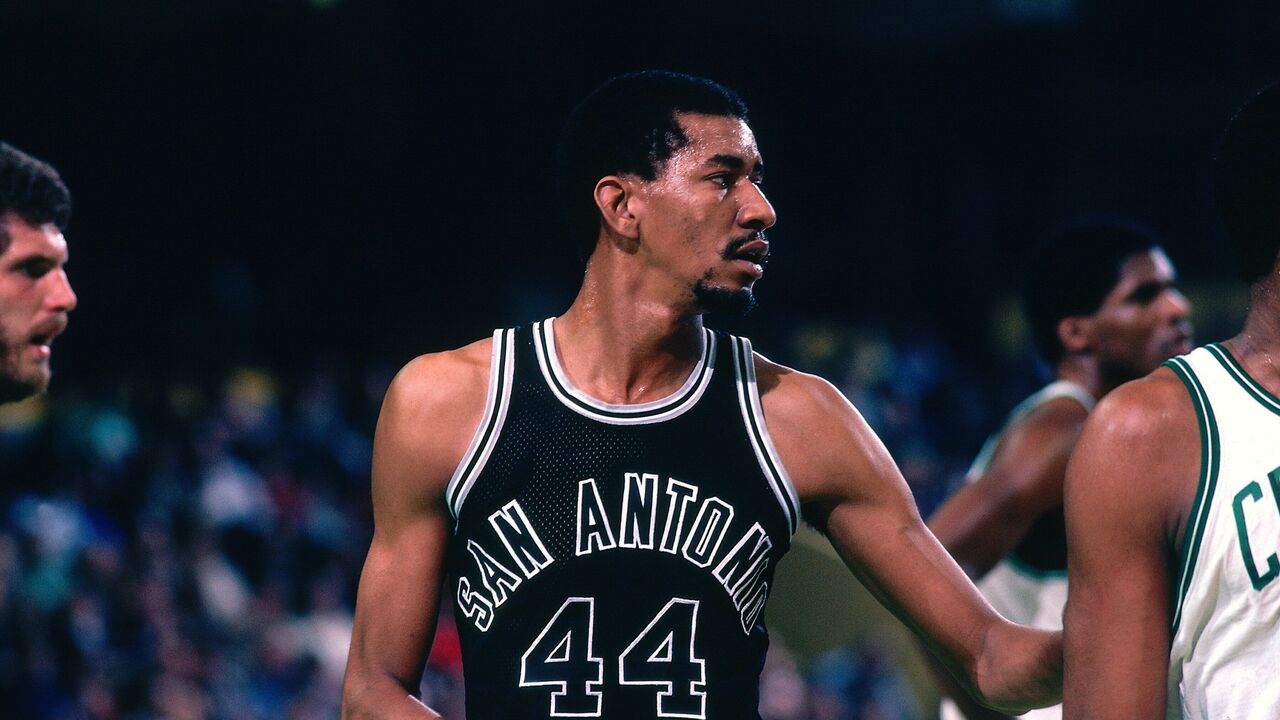
Although he was drafted before the merger, Gervin played most of his pro career after the NBA and ABA combined forces. He made 11 straight All-Star appearances (12 total) and was a perennial MVP candidate in the late 1970s and early '80s. He won the scoring crown four times. If it wasn't for legends like Kareem Abdul-Jabbar, Bill Walton, and Moses Malone, Gervin would be a more prominent figure in NBA history.
Runners-up: Monta Ellis, Lance Stephenson
39. Khris Middleton, G/F (2012) *
Middleton played Robin to Antetokounmpo's Batman during the Bucks' 2021 championship run, averaging 24 points per game in the Finals to cement his status as a legendary Buck. He spent a decade in Milwaukee, where he'll eventually have his jersey retired, averaging over 20 points in four out of five seasons from 2017-18 to 2021-22. He earned three All-Star nods during that stretch.
Runner-up: Earl Watson
38. Mehmet Okur, C (2001)
Okur's NBA stint lasted 10 years, and the Turkish big averaged double figures and more than seven boards in six of those seasons. He was selected for his lone All-Star Game appearance in 2007 while playing for the Jazz.
Runners-up: Louie Dampier, Chandler Parsons
37. Nick Van Exel, G (1993)
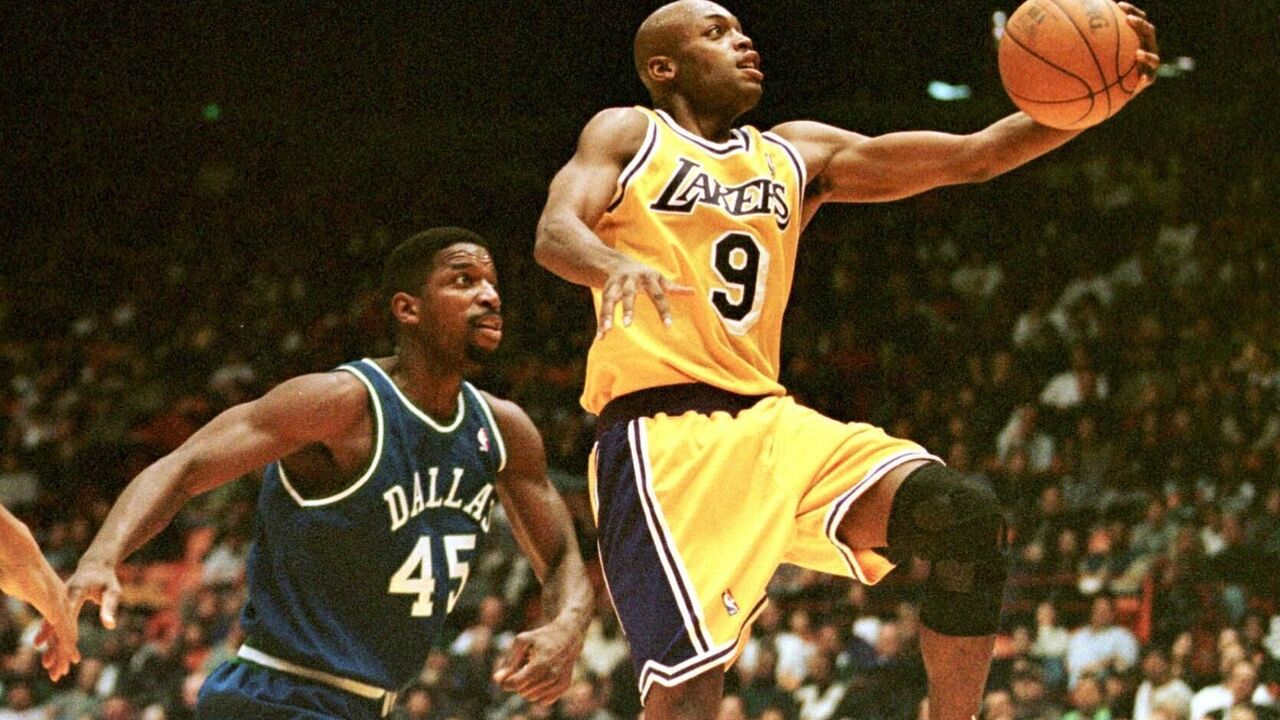
Van Exel averaged 14.4 points and 6.6 assists over his 13-year career. He ushered in a rebuilding period for the Lakers following the Showtime era. While Los Angeles never won with Exel, his flashy play style earned him support from the Laker faithful.
Runner-up: Archie Clark
36. Maurice "Mo" Cheeks, G (1978) 🏅
Four All-Star appearances and five All-Defensive team selections were enough to get Cheeks into the Hall of Fame. He spent his first 11 seasons in Philadelphia, helping lead the Sixers to the franchise's only title in 1983 alongside Julius Erving and Moses Malone.
Runner-up: Ersan Ilyasova
35. Draymond Green, F (2012) *
The final pick of the Big Three that launched the Warriors' dynasty was a second-round gem out of Michigan State. Counting stats will never do justice to Green, who's the ultimate competitor and one of the best defenders of his generation - as evidenced by his nine All-Defensive team selections and the 2017 Defensive Player of the Year award. He's a four-time All-Star, but more importantly to him, he's a four-time champion. Golden State wouldn't have won any of those titles without its emotional leader.
Runners-up: Carlos Boozer, DeAndre Jordan
34. Norm Van Lier, G (1969)
Although Van Lier only played three seasons after the NBA and ABA merged, I gave him the nod because he made his third All-Star Game in the first season of the merger. "Stormin' Norman" was a defensive menace, earning eight All-Defensive honors.
Runner-up: Mario Chalmers
33. Jalen Brunson, G (2018) *
Brunson is the youngest guy on this list at 28 and has only played in the NBA for seven seasons, but he's already soared past his draft projection. Since signing what quickly became a team-friendly deal with the Knicks in 2022, Brunson has averaged 26.4 points and 6.7 assists on nearly 40% 3-point shooting in three seasons. He's earned two All-NBA selections and was named Clutch Player of the Year for 2024-25. His greatest accomplishment is turning the league's laughingstock into a relevant basketball institution again.
Runner-up: Joe Harris
32. Rashard Lewis, F (1998)
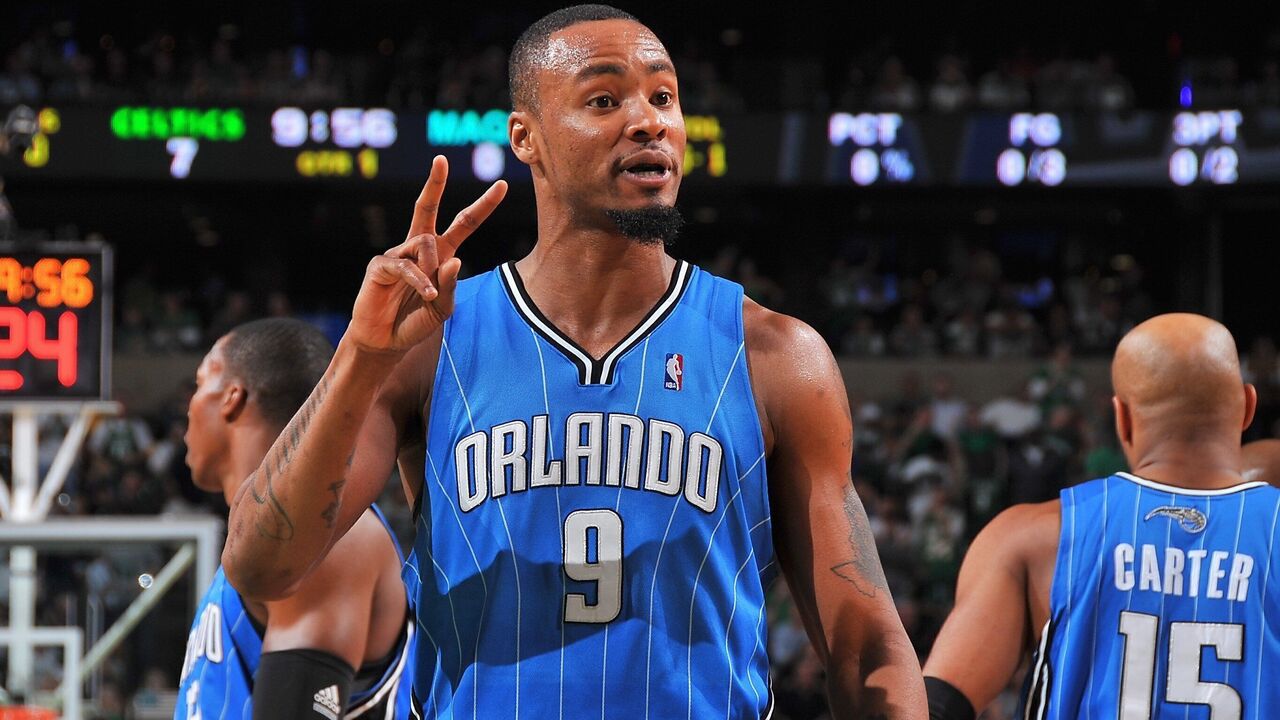
The Magic wouldn't have made the 2009 Finals without Lewis, who was a high-volume 3-point-shooting forward before that became mainstream. He led the league in 3-point attempts in 2007-08, the same season Lewis received one of his two All-Star designations.
Runner-up: Ivica Zubac
31. Gilbert Arenas, G (2001)
Old-timers will back Doc Rivers here, but his peak didn't come close to Arenas'. Plus, Rivers mostly built his legacy as a coach, not a player. Arenas' descent was swift, and he only lasted 10 years in the league, mostly due to off-court shenanigans. However, the three-time All-Star was a ferocious scorer for the Wizards in the mid-2000s, averaging at least 25 points per game from 2004-05 through 2006-07. Don't let his outlandish media takes distract you: Arenas could hoop.
Runner-up: Doc Rivers
Check back Tuesday to see the player selections for picks 30-1!
Sam Oshtry is a sports writer at theScore. You can follow him on X @soshtry for more coverage.